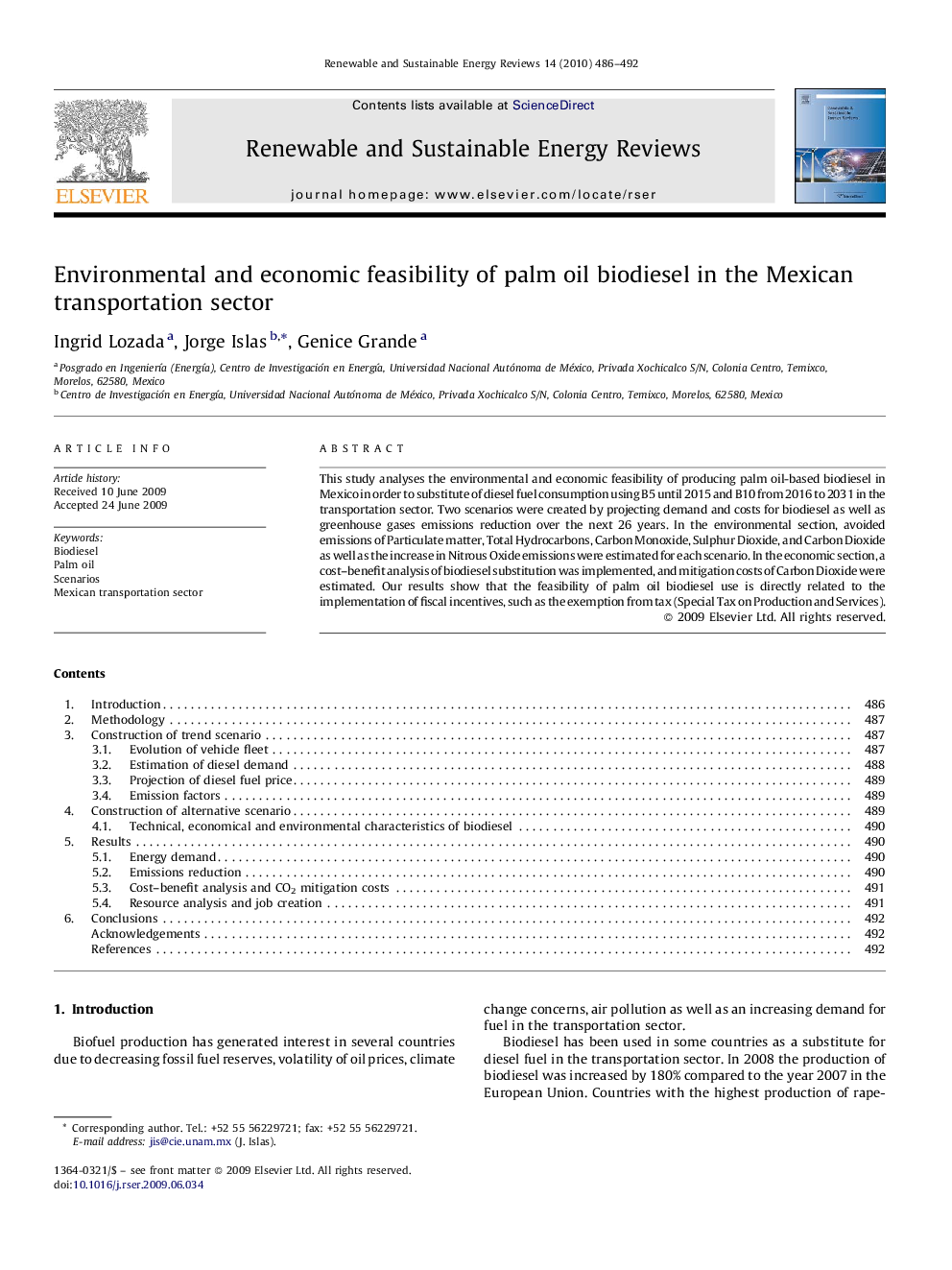| Article ID | Journal | Published Year | Pages | File Type |
|---|---|---|---|---|
| 1751926 | Renewable and Sustainable Energy Reviews | 2010 | 7 Pages |
This study analyses the environmental and economic feasibility of producing palm oil-based biodiesel in Mexico in order to substitute of diesel fuel consumption using B5 until 2015 and B10 from 2016 to 2031 in the transportation sector. Two scenarios were created by projecting demand and costs for biodiesel as well as greenhouse gases emissions reduction over the next 26 years. In the environmental section, avoided emissions of Particulate matter, Total Hydrocarbons, Carbon Monoxide, Sulphur Dioxide, and Carbon Dioxide as well as the increase in Nitrous Oxide emissions were estimated for each scenario. In the economic section, a cost–benefit analysis of biodiesel substitution was implemented, and mitigation costs of Carbon Dioxide were estimated. Our results show that the feasibility of palm oil biodiesel use is directly related to the implementation of fiscal incentives, such as the exemption from tax (Special Tax on Production and Services).
